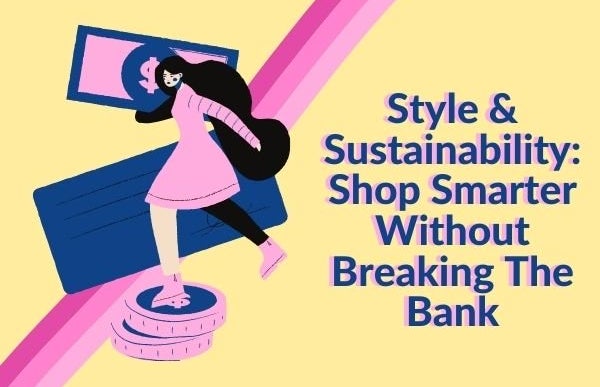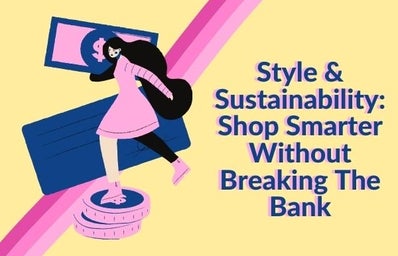In a culture full of materialism and new trends that make their debut every day, it is extremely overwhelming to develop a style that expresses your individuality. Clothing trends come and go far too quickly to keep track of, and many people resort to fast fashion in an attempt to keep up with popular styles.
Fast fashion is an industry that creates massive amounts of low-quality clothing at even lower prices. At a glance, it seems like a perfect solution to keeping up with the ever-changing trends shown on social media. However, according to Ethical Consumer, fast fashion is an entirely unsustainable system. It is detrimental to the environment and exploits people in developing countries for cheap labor.
So, where does this leave us? How can college students with little money in the bank develop a sense of style and individuality without supporting fast fashion?
Shop Secondhand:
This is easily one of the most environmentally friendly options out there. According to True Activist, buying secondhand is cheaper, greener, and supports the local economy. If you enjoy searching for diamonds in the rough, you can shop at Goodwill or your local secondhand store. If you want a larger selection of more “mainstream” or “trendy” clothing, Plato’s Closet may also be a good fit.
Shopping secondhand can be extremely misunderstood. Often, people think of clothing as a symbol of wealth or status, and that second-hand clothing makes one look cheap and unstylish. This is simply not the case. So many amazing pieces can be found in secondhand stores— even luxury brands. (I have a friend who shops exclusively in thrift stores, and she is the best-dressed person in every room she enters!)
Shop Overstock:
If you don’t like the idea of purchasing pre-worn clothing, shopping overstock may be the option for you. In a nutshell, overstock stores such as T.J. Maxx and Gabe’s purchase unsold clothing from mainstream department stores and sell them for a fraction of the price. Though it is less environmentally friendly than shopping secondhand, it prevents the unsold items from ending up in a landfill.
Shop Clearance:
I very rarely pay full price for an item of clothing. Unless I see something that I “absolutely have to have,” I head straight for the clearance section. Though some stores, like American Eagle, still charge outrageous amounts for their clearance items. Other stores, such as rue21 and JCPenney, will cut prices down to mere dollars.
Many stores will also offer promotions and coupons that you can find in-store and online. Don’t be afraid to use them! Check online for coupons before you head to the register, and keep an eye out for “buy one, get one free” deals. They can save you hundreds in the long run.
Buy Clothing Out of Season:
You read that correctly. Buy your bikinis in September, and buy your sweaters in April. Though this sounds ridiculous, most stores want to get rid of their inventory that is no longer in season. You may not be able to wear that piece of clothing right away, but it will be worth it later. Think of it as buying yourself a gift a few months in advance.
“What do I do with my clothing that I’m no longer wearing?”
Unless the item of clothing is absolutely beyond saving, do not throw it away. According to the EPA, 11.2 million tons of clothing were sent to landfills in 2017. Newer, more stylish items can be sold to Plato’s Closet, while older items can be sent to your local second-hand store or Goodwill. You can also trade clothing with your friends or hand it down to family members.
Though trends move quickly, it is important to take responsibility for our decisions. Supporting fast fashion is not a sustainable practice, and there are several other options. At the end of the day, your style is your own, and it shouldn’t have to break the bank.
—
Edited by Kasey Barrow



